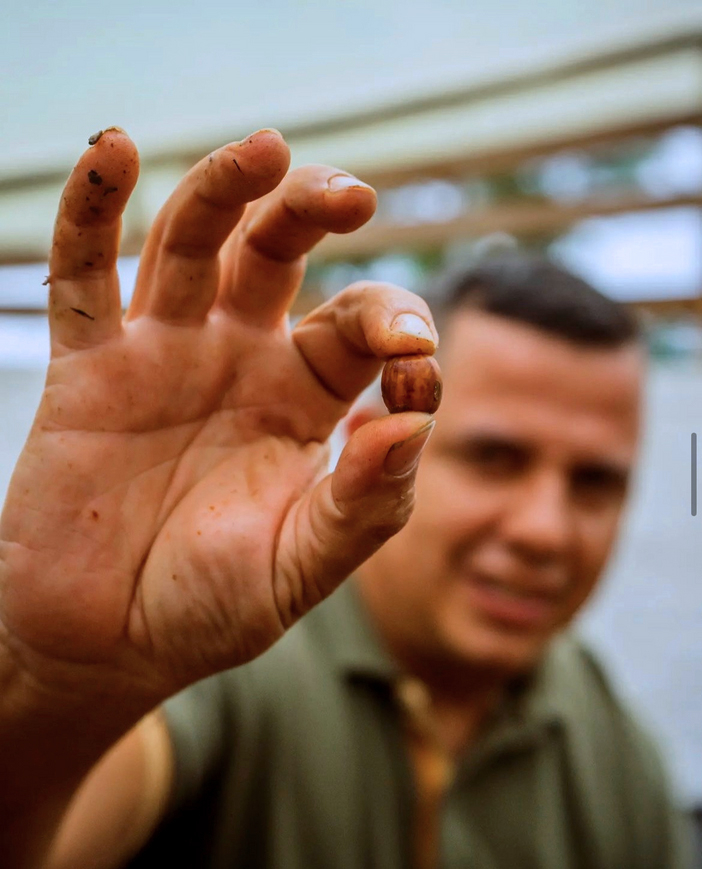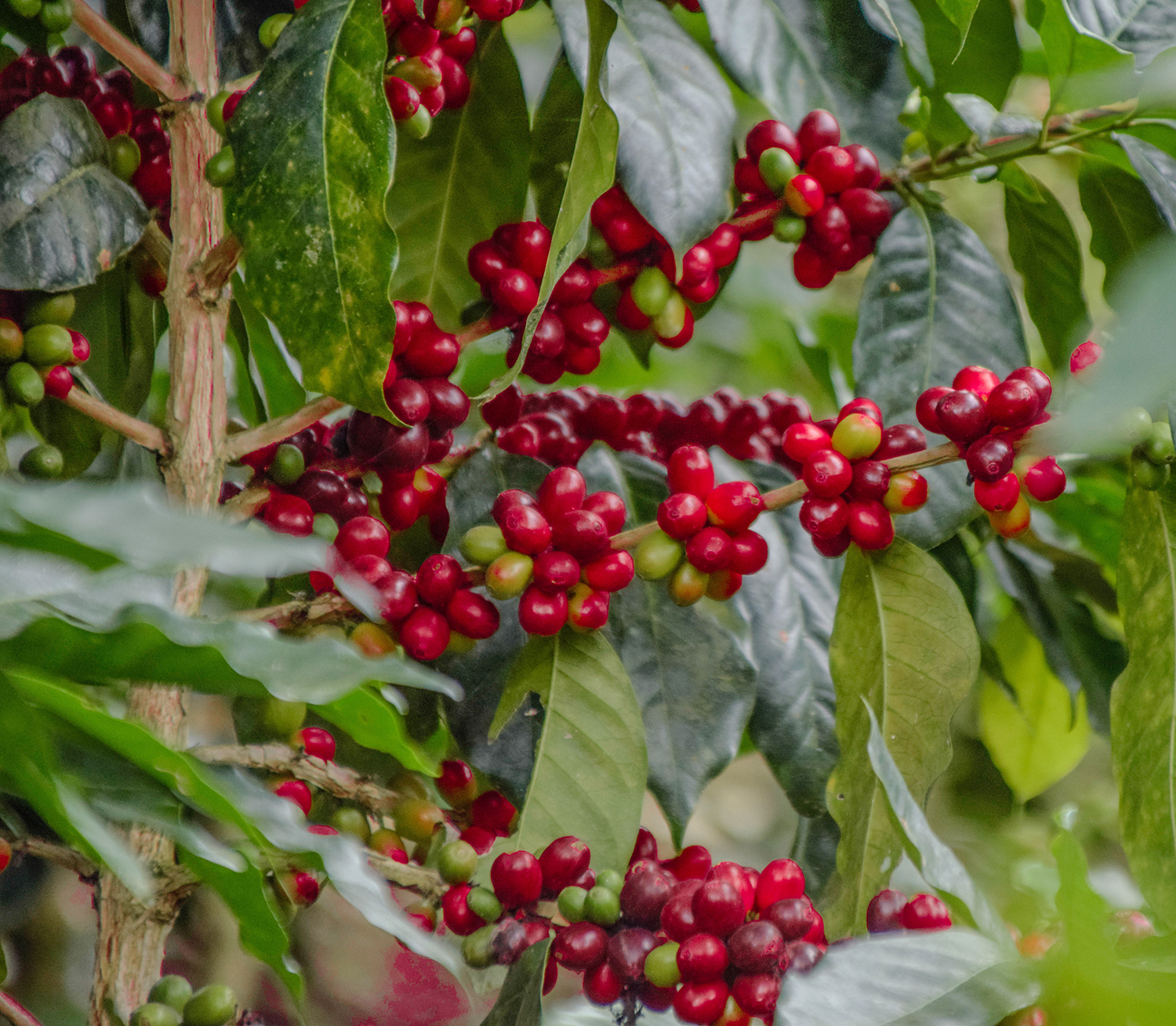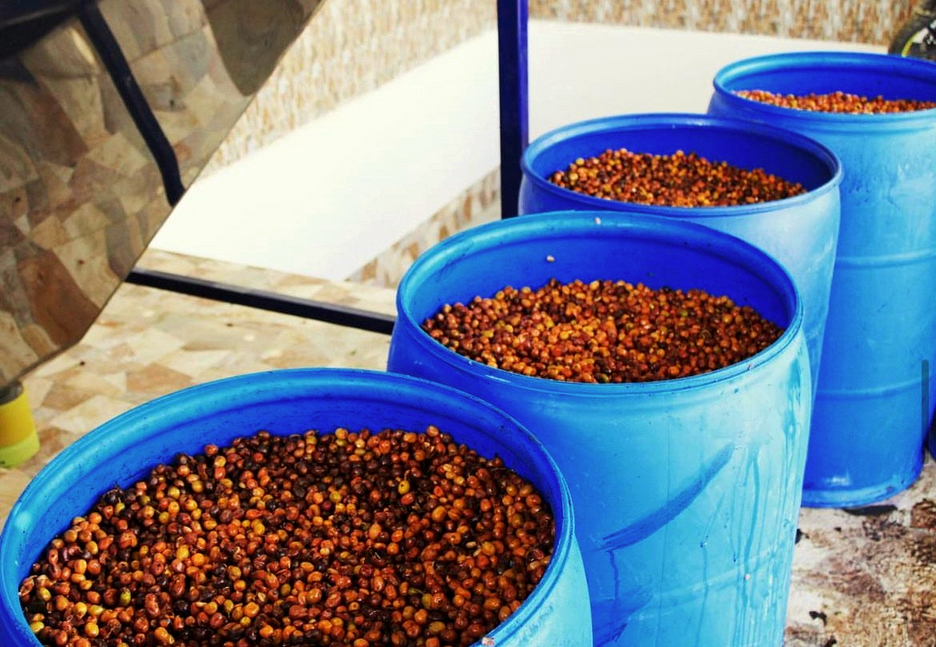
Gardelli- El Mirador, Carbonic Maceration( Colombia)
AED 135.00
Unit price perEstimated delivery between January 06 and January 08.
-
Colombia El Mirador, Carbonic Maceration
Introduction
Experience the exceptional flavors of Colombia El Mirador, a coffee crafted using the innovative carbonic maceration process. This special lot bursts with bold citrus layers, vibrant floral hints, and a tropical fruit medley, creating a coffee that feels as refreshing and sweet as something from the Infusion series. Perfectly suited for espresso and filter, this coffee is a must-try for those who enjoy bright, fruity profiles with complexity and depth.
Coffee Profile
- Producer: Elkin Guzmán
- Country: Colombia
- Region: Huila
- Altitude: 1550-1750 masl
- Varieties: Catiope, Bourbon
- Process: Special Process – Carbonic Maceration (Raised Beds)
- Picked: October–December 2023
- Arrived: July 2024
- Roast Profile: Crafted by Rubens Gardelli
- Roasted On: Customised solid-drum roaster
- Packaging: Box + Vacuum pack
- Net Weight: 250g
Flavor Notes
- Primary Flavors: Grape, Mandarin, Blood Orange, Papaya, Passion Fruit
- Aroma: Vibrant, fruity, and sweet with a hint of floral complexity
- Taste: Lively and juicy with bold citrus fruitiness, followed by a touch of tropical papaya and passion fruit, and a clean, crisp finish.
- Body & Finish: Smooth, medium-bodied, with a bright acidity and refreshing aftertaste.
Brewing Recommendations
V60 (Conical Brewer):
- Coffee: 17g
- Grind Size: Comandante 16 clicks (medium)
- Water: 250g (40 TDS) at 94°C
- Filter: Cafec Abaca+
- Brew Time: 2:20 minutes
- Brew Strength: 1.48 TDS
Flat-Bottom Brewer (e.g., Kalita or Stagg X):
- Coffee: 17g
- Grind Size: Comandante 15 clicks (medium)
- Water: 250g (40 TDS) at 94°C
- Filter: Stagg [X] Fellow
- Brew Time: 2:15 minutes
- Brew Strength: 1.51 TDS
Why Choose Colombia El Mirador, Carbonic Maceration?
This exceptional coffee, crafted with meticulous attention to detail, brings together a vibrant, citrus-driven profile with tropical fruit sweetness and floral complexity. Thanks to the carbonic maceration process, it delivers a coffee experience unlike any other. Whether you brew it as espresso or filter, you’ll enjoy a cup full of dynamic flavors and a refreshing finish.
Note: This coffee is freshly roasted to order, with shipments made on Monday, Wednesday, and Friday (excluding national holidays). Cut-off time is 11:59pm (UTC+1) the day before roast day. Whole beans only.
THE STORY BEHIND
El Mirador is a coffee farm owned by Elkin Guzmán, whose family has been engaged in coffee production for over 70 years. For the past 12 years, there has been a strong focus on the research into processing techniques at the farm.
El Mirador is situated in the municipality of Palestine, within the El Portal village, near the Pompeii Reserve in the Magdalena river valley. The farm covers an area of 32 hectares, the majority of which is dedicated to cultivating exotic coffee varieties like Catiope, Mokka, Tabi, Geisha, Orange, Striped, and Pink Bourbon. Additionally, two hectares are specifically allocated for experimenting with the Caturra variety.
Elkin has implemented standardized workflows and processing procedures on the farm to ensure consistency and to implement quality control at every stage of the production. He pays close attention to detail and employs innovative fermentation methods and a variety of processing techniques, such as maceration, lactic and acetic fermentation, and natural processing.

THE VARIETY
BOURBON
Bourbon is one of the most culturally and genetically significant arabica varieties of the world, celebrated for its exceptional cup quality at high altitudes. Along with Typica, it is one of the two main cultivars, from which many modern varieties are derived. Historical records suggest that Bourbon originated in the coffee forests of Southwestern Ethiopia and was later cultivated in Yemen. Recent genetic studies have confirmed this origin.
Bourbon was first grown on Réunion, known as Bourbon Island before 1789, and was later introduced by the French to mainland Africa and Latin America. It thrives at altitudes between 1,100 and 2,000 masl, offering yields that are 20–30% higher than Typica. While it has a commercially viable yield and growth potential, it is generally vulnerable to diseases and pests.
CATIOPE
The Catiope variety in this selection is a cross between Colombian Caturra and Ethiopian heirloom varieties "Ca(turra)-(E)tiope." It was developed in the Colombian department of Cauca and obtained by Elkin and Banexport in 2014 on an experimental farm visit. The plant is a low-growing, high-bearing tree with slightly copper-colored leaves. The cherry color is generally full-red with a maturation Brix concentration of 20–22°.

THE FERMENTATION PROCESS
Once the cherries reach the processing area, they are floated to remove dry beans, debris, leaves, and voids based on density: the sorting ensures a more uniform fermentation and improves the coffee's physical quality.
After the selection, the coffee is placed in plastic bins: the coffee beans are left to ferment intact, with the pulp, for 70 hours in the presence of carbon dioxide. This process enhances the sweetness and body of the final beverage, while intensifying the fruity notes in the cup. The changes during this initial stage are primarily enzymatic.
Next, the coffee is pulped and returned to the bins with its own sugar-rich juice and microorganisms. These bins are sealed hermetically to initiate fermentation, where the microorganisms begin to break down the sugar chains in the mucilage, enhancing the fragrance and acidity attributes. Carbon dioxide is injected to displace the oxygen in the bin, creating an environment for maceration. This process lasts between 70 and 94 hours, bringing the total fermentation time to between 140 and 188 hours.
Finally, the coffee is washed and dried for a period of 18 to 22 days. The beans are then stored in bags for one or two months. Before being exported, they are cleaned using a hulling machine.

Share information about your brand with your customers. Describe a product, make announcements, or welcome customers to your store.
Share information about your brand with your customers. Describe a product, make announcements, or welcome customers to your store.
AED 135.00
Unit price perRecently viewed products

FAQs
Can I try the machines before purchasing?
Use this text to answer questions in as much detail as possible for your customers.
Use this text to answer questions in as much detail as possible for your customers.
Use this text to answer questions in as much detail as possible for your customers.
Use this text to answer questions in as much detail as possible for your customers.



